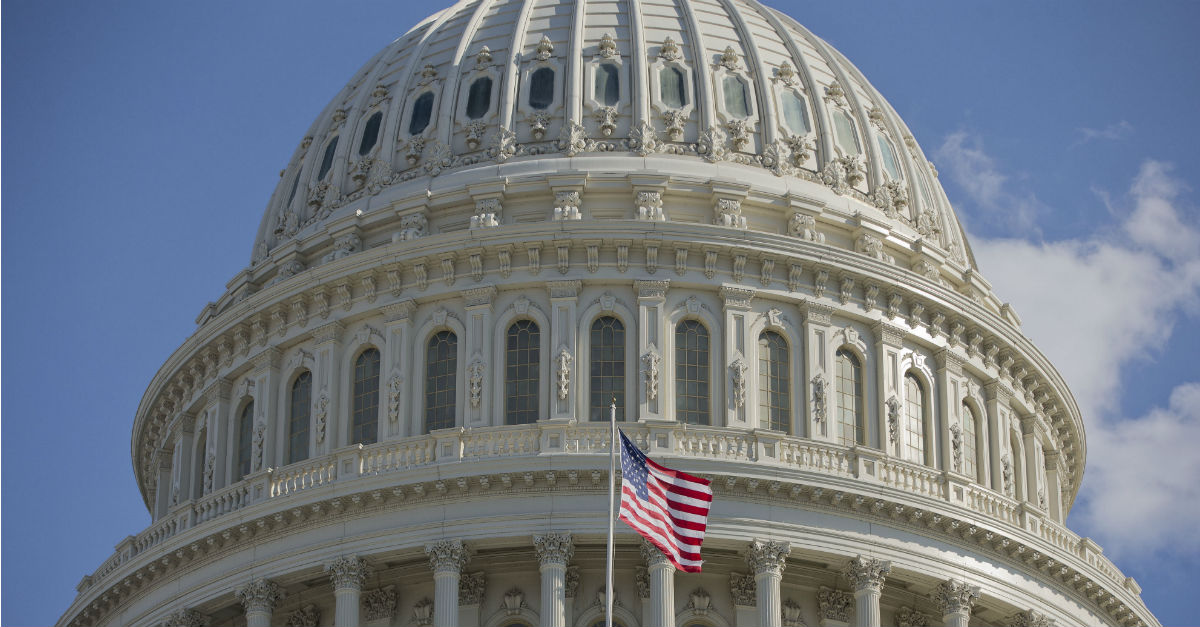By Jake Grant
Videos by Rare
In 1811, Thomas Jefferson famously wrote, “Never put off till tomorrow what you can do today.” That advice is hard for anyone to follow, but it seems particularly difficult for our elected officials.
Over the last few months, Senate leaders, like those in the House before them, have been working to find some sort of passable plan for the repeal of Obamacare. But after the Senate on Wednesday rejected the very same partial repeal that passed in 2015, free market healthcare is even more of a distant dream. There have been 7 years of promises but seemingly little planning to achieve them. And now, Congress is charging ahead to budgets, again forgetting Jefferson’s advice.
RELATED: Ignoring our $20 trillion national debt is not sustainable
The recently released GOP House budget sets discretionary spending for fiscal year 2018 at $1.13 trillion, about the same level as the continuing resolution that passed this spring. It hopes to produce a surplus within a decade thanks to increasing economic growth. The Republican Study Committee (RSC) also released its budget, which balances by 2023. Again, the budget slows the rate of growth over time so that eventually the revenues catch up to increases in spending – balancing in six years.
Let’s be clear: Both of these frameworks are – generally – steps in the right direction. The idea of a surplus thanks to increased economic growth is promising. But to listen to the reaction to such budgets, one would think dramatic cuts are being made. In reality? Actual cuts are almost a thing of the past.
Every year, multiple proposals promise to balance the budget in 20, 10 or even five years, but at best, we see growth reductions that depend on expected revenue increases; at worst, we see a reliance on budget gimmicks to get around spending caps, as well as promised cuts that never happen. These tricks buy time for Congress to spend now and force their successors to make the cuts if the time comes when the economy lags behind projections.
At this point, it’s nearly impossible to balance the budget in the short term. The political arena changes, but new programs keep getting added. And each year, the budget grows, sometimes by more than projected, sometimes by less – but only rarely does it shrink. In fact, federal deficits have more than doubled since 2007. When even holding the growth rate constant is a radical idea inside the Beltway, it’s much easier to fund a program than it is to take that money away.
It shouldn’t be this way. There are plenty of programs that people across the political spectrum agree are costly and unnecessary.
Whether you look at official GAO reports showing billions in annual waste and duplication or bipartisan reports like those of Toward Common Ground and Green Scissors, it’s clear that there are countless opportunities to trim.
The American people want balanced budgets. In multiple polls, most Americans claim that they worry a “great deal” about federal spending and the budget deficit. A plurality of Americans and a majority of Republicans want spending to be reduced. Runaway spending isn’t just a conservative issue but one that affects millions of Americans across the country.
RELATED: Here are three things John Kelly needs to do to get Donald Trump’s White House in line
And yet, currently, fiscal hawks are fighting an uphill battle. When the status quo is massive spending increases each year, and the alternative proposals are slightly less spending each year, it’s painfully obvious how far we have to go.
While it can be hard to find common ground between the left and the right, lawmakers can’t forget what’s at stake. Failing to address the growth of government and putting our future so much at stake would make even the most cynical Founding Father turn over in his grave, and it’s clear we need to turn things around sooner rather than later.
Jake Grant is the Outreach Director for the Coalition to Reduce Spending, a nonprofit organization dedicated to reducing government spending and debt.



